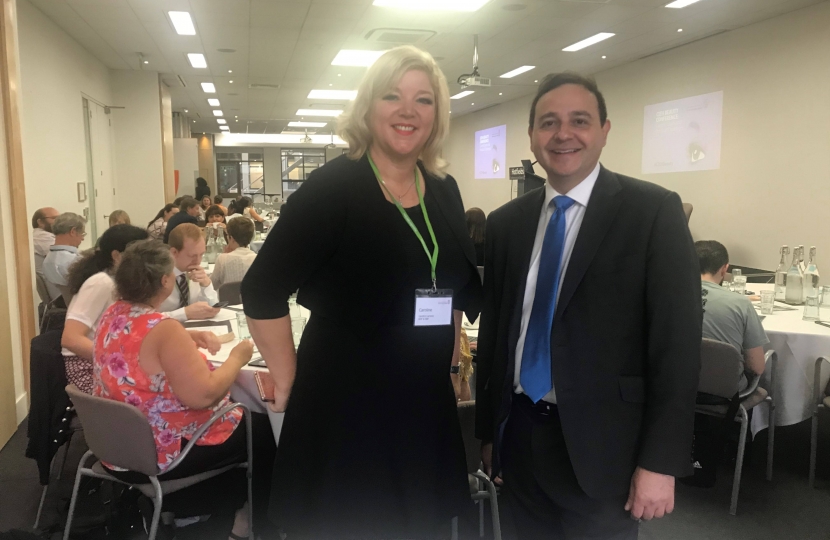
South Leicestershire MP, Alberto Costa, recently delivered a key note speech to the annual Chartered Institute of Environmental Health’s (CIEH) Beauty Conference, centred around the current issues and practical challenges that the beauty industry currently faces.
Alberto's speech set out his call for greater regulation of non-surgical cosmetic procedures. The conference also explored the main challenges that the beauty industry currently faces such as the rapid and continued growth of the industry, lack of regulation and the significant cost that botched procedures bring to the NHS.
There were also discussions focussing on microblading, sterilisation and the National Occupational Standards alongside hearing from the National Hairdressers Federation, the National Beauty Federation, and the Royal Society of Public Health.
Alberto, who is Vice-Chair of the newly formed Beauty, Aesthetics and Wellbeing All Party Parliamentary Group (APPG) has been consistently campaigning for greater regulation of the non-surgical cosmetic procedures industry for many months. This was initially brought to his attention through the case of one of his constituents, Rachael Knappier, who received a dermal filler by a beauty therapist who was unregulated and unqualified. The procedure went wrong when the filler was accidentally administered into an artery which caused a trauma to her lip.
Alberto said, “I was grateful to be invited by the Chartered Institute of Environmental Health to speak at it’s very successful conference. The mark of a professional is someone who is regulated, trained and licenced. I would like to see the non-surgical cosmetic procedure industry regulated to ensure that those who administer treatments are qualified and trained to a high standard and to protect consumers in this ever-growing industry. These standards do exist, however they need to be implemented by the Government”.
Alberto also highlighted that at present, there are currently no statutory training requirements for those carrying out non-surgical cosmetic procedures. In November 2015, Health Education England produced a review of qualifications required. According to this review, a person seeking to carry out procedures such as Botox and dermal fillers would need to be qualified at a post graduate level equivalent which is categorised as ‘level 7’. This category however excludes the beauty industry as there are currently no recognised training courses that exist for Beauty Therapists beyond ‘level 5’.
Alberto added, “I will continue to champion this issue through the work of the APPG which will launch an inquiry into regulation of the non-surgical cosmetic procedure industry in the autumn. There is a clear need for more comprehensive training qualifications for beauty therapists. This would then allow those who want to undergo training for these procedures to have more opportunities and to administer them safely.”
Picture above shows Alberto with Caroline Larissey, Director of Quality and Standards at the National Beauty Federation and National Hairdressers Federation.
